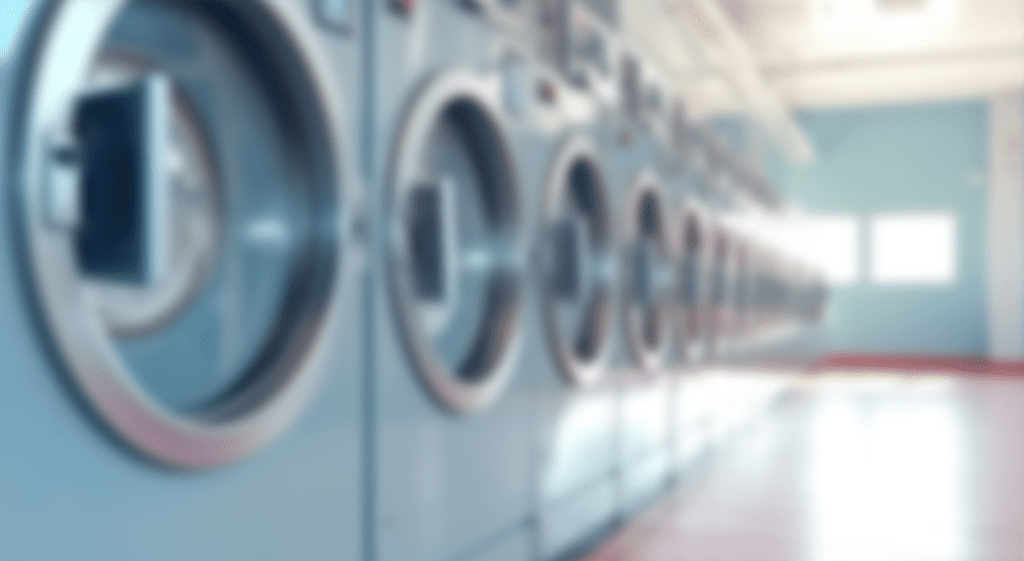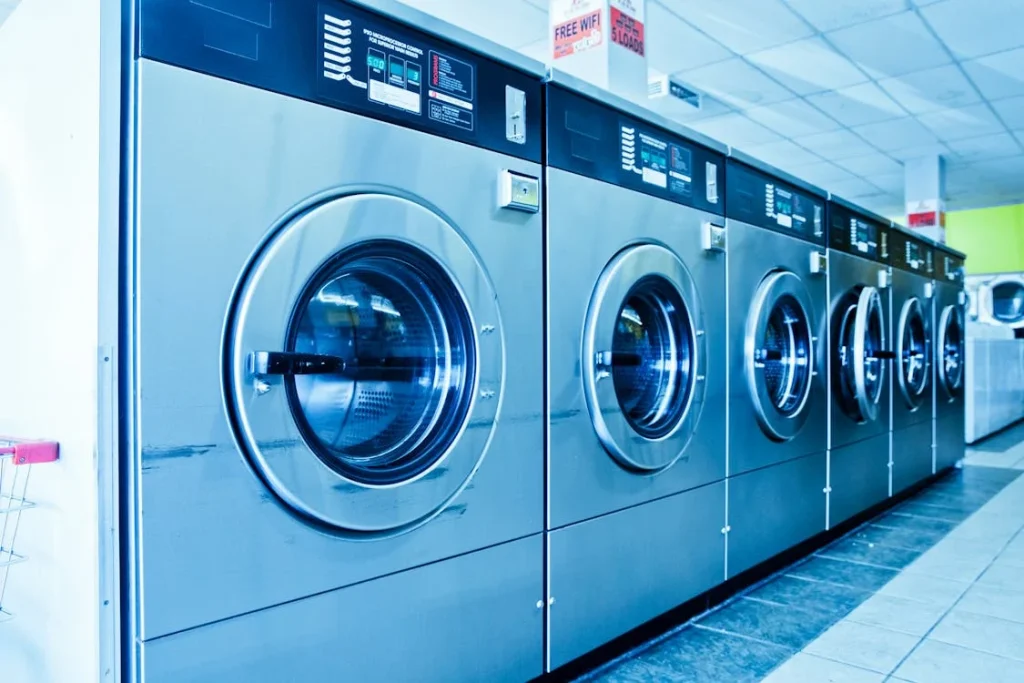Industrial laundries play a crucial role in maintaining hygiene and cleanliness across various sectors. From healthcare facilities to luxury hotels, these services ensure that large volumes of textiles are cleaned efficiently and thoroughly. Unlike your standard home washing machine, industrial laundries are equipped with advanced technology to handle diverse textile types while adhering to strict quality and environmental standards. In this article, we’ll explore the various types of items that can be washed in an industrial laundry and why this service is indispensable for many industries.
Tabla de contenidos
- 1. Understanding Industrial Laundry Services
- 2. Categories of Items Handled by Industrial Laundries
- 3. How Industrial Laundries Handle Different Items
- 4. Why Industrial Laundry Is Environmentally Friendly
- 5. Choosing the Right Industrial Laundry Service
- 6. Conclusion and Final Thoughts
- 7. FAQs
1. Understanding Industrial Laundry Services

1.1. What Sets Industrial Laundry Apart from Home Washing
If you’ve ever struggled to fit a heavy duvet into your home washing machine, you’ve probably wished for a better solution. Industrial laundries are designed to handle not just volume but also variety. They utilize heavy-duty machines that can clean large quantities of textiles in a fraction of the time it would take at home. These machines come with advanced settings to cater to specific fabric needs, ensuring that each item receives optimal care. Furthermore, industrial laundries often implement rigorous hygiene protocols, making them ideal for sectors like healthcare and food services where cleanliness is paramount.
1.2. Key Benefits of Industrial Laundry Solutions
Imagine trying to clean hundreds of linens, uniforms, or towels daily—it’s overwhelming, right? Industrial laundry services are a game-changer in this regard. They save time and resources by offering bulk cleaning solutions that are both efficient and eco-friendly. These services also use industrial-grade detergents and water-saving technologies, ensuring superior cleanliness while minimizing environmental impact. Moreover, the quick turnaround times mean that businesses can maintain a steady supply of fresh linens, which is crucial for operational efficiency and customer satisfaction.
2. Categories of Items Handled by Industrial Laundries
2.1. Hospital and Healthcare Linens
Hospitals and healthcare facilities generate an enormous amount of soiled linens daily. From patient bed sheets to surgical scrubs, cleanliness is non-negotiable in these environments. Industrial laundries specialize in meeting these stringent hygiene requirements.
2.1.1. Bed Sheets and Pillowcases
Clean bed sheets and pillowcases are essential for patient comfort and safety. Industrial laundries use high-temperature washing cycles and sanitizing detergents to remove bacteria, viruses, and stains effectively. This ensures that every sheet and pillowcase meets the rigorous cleanliness standards required in healthcare settings.
2.1.2. Medical Gowns and Scrubs
Doctors, nurses, and other healthcare workers rely on sterile gowns and scrubs to perform their duties safely. Industrial laundries not only clean these items but also ensure they are free from contaminants that could pose health risks. This is achieved through specialized washing cycles designed to kill pathogens without damaging the fabric.
2.1.3. Towels and Cleaning Cloths
Hospitals use towels and cleaning cloths extensively for patient care and sanitation. Industrial laundries ensure these items are thoroughly cleaned and sanitized, ready for reuse without compromising hygiene.
2.2. Hospitality Industry Textiles
In the hospitality sector, first impressions matter, and nothing leaves a better impression than crisp, clean linens. Industrial laundries ensure that hotels and restaurants maintain high standards of cleanliness and presentation.
2.2.1. Hotel Linens: Sheets, Duvets, and Towels
Guests expect spotless, soft linens during their stay. Industrial laundries use specialized processes to maintain the texture, color, and freshness of these items, ensuring guest satisfaction and repeat business.
2.2.2. Restaurant Linens: Tablecloths and Napkins
Stained tablecloths and napkins are a big no-no in any restaurant. Industrial laundries tackle these stains using advanced cleaning technologies, leaving these textiles looking as good as new. This enhances the dining experience and upholds the establishment’s reputation.
2.3. Industrial and Manufacturing Fabrics
Even in industrial settings, cleanliness plays a significant role. Workers need fresh uniforms and functional protective gear to perform efficiently and safely.
2.3.1. Uniforms for Workers
Industrial laundries handle uniforms for various industries, ensuring they are cleaned and restored to their original condition. This not only promotes a professional appearance but also prolongs the life of the garments.
2.3.2. Safety and Protective Gear
Items like gloves, aprons, and coveralls require specialized cleaning to maintain their protective qualities. Industrial laundries use precise washing techniques to ensure these items remain effective and safe for use.
2.4. Specialty Items
From oversized curtains to delicate fabrics, industrial laundries cater to unique cleaning needs that standard washing machines can’t handle.
2.4.1. Delicate Fabrics and Designer Wear
Handling designer wear requires a careful approach to preserve the integrity of the fabric. Industrial laundries utilize gentle cycles and specialized detergents to clean these items without causing damage, making them look as good as new.
2.4.2. Large Items like Curtains and Carpets
Large textiles like curtains and carpets are cumbersome to clean at home. Industrial laundries are equipped with machines that can accommodate these bulky items, ensuring thorough cleaning and freshness.
3. How Industrial Laundries Handle Different Items
3.1. Sorting and Classifying Textiles
The first step in the industrial laundry process is sorting. Textiles are classified based on their fabric type, color, and level of soiling. This ensures that each item receives the appropriate cleaning treatment, preventing damage and maintaining quality.
3.2. Advanced Washing Technologies
Industrial laundries employ state-of-the-art washing machines that use precise settings tailored to different fabrics. From high-temperature cycles for hospital linens to gentle washes for delicate items, these machines deliver optimal results while minimizing wear and tear.
3.3. Quality Control Processes
Before items are returned to clients, they undergo rigorous quality checks. This includes inspecting for stains, tears, or other issues. Only items that meet the highest standards are approved for delivery, ensuring customer satisfaction and maintaining the laundry’s reputation.
4. Why Industrial Laundry Is Environmentally Friendly
4.1. Water Conservation Techniques
Modern industrial laundries are designed to conserve water through advanced recycling systems. These systems filter and reuse water, significantly reducing waste without compromising cleanliness. It’s a win-win for businesses and the planet.
4.2. Energy Efficiency Measures
Energy-efficient machines are a cornerstone of industrial laundries. They use less power while delivering superior cleaning performance, helping businesses reduce their carbon footprint and operational costs.
4.3. Eco-Friendly Detergents
Gone are the days of harsh chemicals. Today’s industrial laundries use biodegradable detergents that are tough on stains but gentle on the environment. This commitment to sustainability benefits both the client and the planet.
5. Choosing the Right Industrial Laundry Service
5.1. Evaluating Their Expertise
When selecting an industrial laundry service, it’s crucial to assess their expertise. Look for companies with a proven track record in handling various textiles and meeting industry-specific requirements. Experienced providers can deliver better results and adapt to unique needs.
5.2. Understanding Their Technology
The technology used by a laundry service can make a big difference in the quality of cleaning. Modern machines and eco-friendly processes indicate a forward-thinking provider committed to excellence and sustainability.
5.3. Reviewing Customer Testimonials
Client reviews offer valuable insights into the reliability and quality of a laundry service. Positive testimonials highlight a company’s strengths and can help you make an informed decision.
6. Conclusion and Final Thoughts
Industrial laundries are the backbone of cleanliness for countless industries. They offer unparalleled efficiency, sustainability, and quality, making them indispensable for businesses ranging from hospitals to restaurants. Whether it’s maintaining sterile medical linens or keeping hotel duvets fluffy and fresh, industrial laundries ensure that textiles meet the highest standards. If you’re ready to elevate your laundry game, contact us today to discuss how we can meet your needs with tailored solutions and exceptional service.
7. FAQs
Can industrial laundries clean delicate fabrics?
Yes, most services offer specialized processes to handle delicate items carefully, ensuring they remain intact and look their best.
Are industrial laundries eco-friendly?
Absolutely! Modern industrial laundries employ water recycling, energy-efficient machines, and biodegradable detergents to minimize environmental impact.
What industries benefit most from industrial laundries?
Industries like healthcare, hospitality, manufacturing, and food services rely heavily on industrial laundries for their high-volume and specialized cleaning needs.
Can I send my personal laundry to an industrial service?
While some industrial laundries cater exclusively to businesses, others accept individual clients. It’s best to check with the provider directly.
How do industrial laundries ensure quality?
Through meticulous sorting, advanced washing technologies, and rigorous quality control processes, industrial laundries consistently deliver high-quality results.
Here are some other articles that we think might interest you:
Environmental Impact of Industrial Laundry


